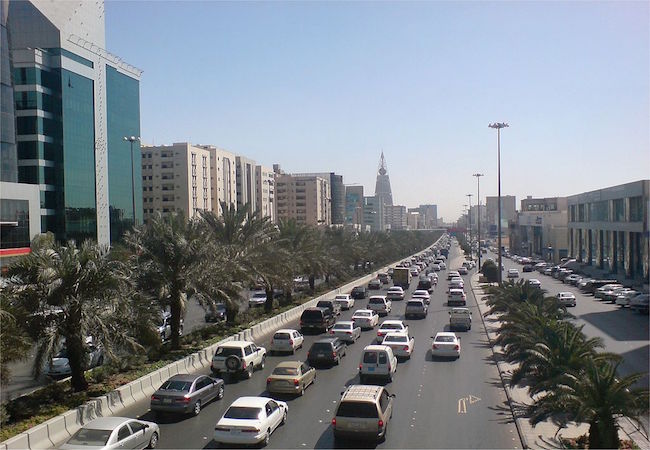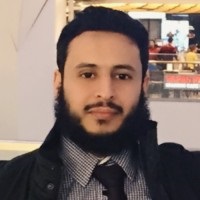Saudi Arabia launches significant reforms, eases restrictions

Crown Prince Mohammed Bin Salman, Deputy Prime Minister and Minister of Defense, has launched several comprehensive and transformative reforms that will go a long way in changing the social, economic and political landscapes of the Kingdom. The reforms have already started to address some of the country’s long-standing issues, such as allowing women to drive, opening movie theatres, abolishing Kafalah system, and introducing the value-added tax.
This was disclosed by Dr. Nasser Alshareef, head of the Business Administration Department and Vice Dean for Quality and Development at the Majmaah University,here today. Dr. Alshareef said that the Saudi leadership has undertaken reforms that are crucial to economic diversification from oil sector, such as labor market reform, privatization and opening the market to foreign investors. “Some of the reforms Crown Prince Mohammed oversaw in the Kingdom have won praise from Western leaders, seeking economic diversification within the Kingdom and in terms of responding to the COVID-19 pandemic,” he added.
Dr Alshareef pointed out that that the e-governance initiative is of great help for the citizens and expatriates of the Kingdom. “there are many apps which are working, and the Saudi government became e-government in true sense of the term,” said the academician, while referring to the Accenture’s latest comparative study, which ranks Saudi Arabia fifth in the use of “digital government”. The study found that Singapore, Norway, and the United Arab Emirates (UAE) ranked first, second, and third among ten countries, respectively.

On the question of corruption, Dr. Alshareef said that Crown Prince Mohammed went the extra mile to combat corruption in the Kingdom. In this context, he recalled the remarks made by Crown Prince Mohammed, who once said that in the past few decades, corruption has “spread like cancer” and its rampant to the extent that it has consumed approximately 5 percent to 15 percent of the national budget. “Indeed, I think this scourge is the enemy that endangers development and prosperity”, remarked the crown prince.
Referring to the economic reforms undertaken by the Kingdom, he said that Saudi Arabia’s sovereign wealth funds are turning to homeland with PIF injecting $40 billion into the economy every year, which is a big accomplishment, especially during this pandemic. “Earlier this year, the Public Investment Fund invested $40 billion in global stocks, and will invest the same amount in the domestic economy next year and 2022,” he added.
According to reports, Crown Prince Mohammed bin Salman said that some local investments may be funded by liquidating existing assets in a rare statement recently. Dr. Alshareef said that the plans and policies formulated by the crown prince will lower unemployment in the Kingdom besides being the least affected country by Corona pandemic in the Group of Twenty (G20).
During the past, the tourism industry has undergone restructuring, and the country increased the tourism industry’s contribution to GDP to 3.6% in 2018. “This growth opened up new business units and contributed to the employment of hundreds of thousands of Saudis, and we are still in the starting phase of such tourism reforms,” said the academician. “As a result of our efforts to eliminate the cost-of-living allowances, we succeeded in retaining citizens’ salaries and most of the allowances and bonuses and continued to carry out capital expenditures of SR137 billion, increased operating and maintenance expenditures, and shouldered the pandemic,” he added while referring to the cost of health care that reached SR188 billion.
He added that during 2018, the unemployment rate was about 13%, and our unemployment rate dropped to 11.8% due to the increased efficiency of government agencies, public investment funds, programs, and other government initiatives by early 2020. He also touched upon the basic goals and achievements of the country within the framework of the Saudi Vision 2030. He said that Council of Ministers had instructed the Committee for Economic and Development Affairs (CEDA) to identify and monitor the mechanisms and measures that are essential to the implementation of the Saudi Arabia Vision 2030.
Referring to the abolition of sponsorship system, Alshareef said that the Ministry of Human Resources and Social Development of Saudi Arabia announced on November 4, 2020 that the “Labor Reform Plan” will improve the working conditions of migrant workers by terminating the Kafala system. “By March 2021, the kafala system for all private-sector migrant workers will be abolished,” he added.
He pointed out that the growth of the entertainment industry in Saudi Arabia will promote domestic tourism. Armed with an investment budget of SR10 billion, Development Investment Entertainment Company (DIEC) is acting as a catalyst in the development of the cinema sector in Saudi Arabia and is projected to directly contribute SR1 billion to the GDP and create 1,000 direct jobs. In fact, lifting the 35-year ban on cinemas is one of the most visible and impactful initiatives undertaken by the government in the Kingdom, unlocking an untapped and lucrative economic opportunity.
On regional issues, Dr. Alshareef said that Crown Prince Mohammed has been working tirelessly to find a solution to the regional conflict, especially Yemen. But “the participation of the Iranian regime in supplying missiles to the Houthi militia is a direct military aggression of the Iranian regime,” said the academician, while advocating the legitimacy in Yemen. In fact, the ongoing conflict in Yemen has severely strained state legitimacy in the country. To this end, he pointed out that the crown prince has played an active role in strengthening the diplomatic relations with different countries to ensure peace and security in the region and across the world.
Dr. Alshareef also spoke about the highly-ambitious NEOM project, which forms the core component of Vision 2030 plan. “NEOM is the vision of Crown Prince Mohammed bin Salman and the core content of Saudi Arabia’s Vision 2030 plan, which aims to promote the growth and diversification of the Saudi economy and enable the country to play a leadership role in global development,” he added. It was launched in 2017 and valued at $500 billion. NEOM will include towns, ports and corporate districts, research centers, sports and entertainment venues, and tourist destinations.
Referring to the efforts to curb the menace of terrorism, he said that Crown Prince Mohammed was instrumental is creating an Islamic Military Counter Terrorism Coalition (IMCTC), which is an intergovernmental counter-terrorist alliance of countries in the Muslim world, united around military intervention against ISIL and other counter-terrorism activities. The coalition is made up of 44 countries and has announced that they are ready to use the full potential of their military, economic and media capabilities to fight terrorists in all corners of the Islamic world, he added. Not only this, the crown prince has been working intensively to unite Arab nations for the common good.
He said that the crown prince also established the Misk Foundation to encourage young people in Saudi Arabia to learn and develop leadership skills. This is a non-profit organization with the mandate to cultivate and encourage young people to learn and develop leadership skills, thereby creating a better future for the Kingdom. The crown prince has also intensified efforts to boost the localization of defense industries. To this end, it is important to mention the launch of the Saudi Arabian Military Industries (SAMI) way back in 2017.
The SAMI was established to provide military products and services in Saudi Arabia and to reduce the country’s reliance on foreign purchases of military products. The company operates across aeronautics, land systems, including military vehicles, weapons and missiles, and defense electronics. SAMI’s reported targets include the contribution of SR14 billion (US$3.7 billion) to the Saudi economy by 2030, SR6 billion (US$1.6 billion) investment in research and development and the creation of 40,000 jobs.




